Rare pearl mussels discovered in Scottish lochs
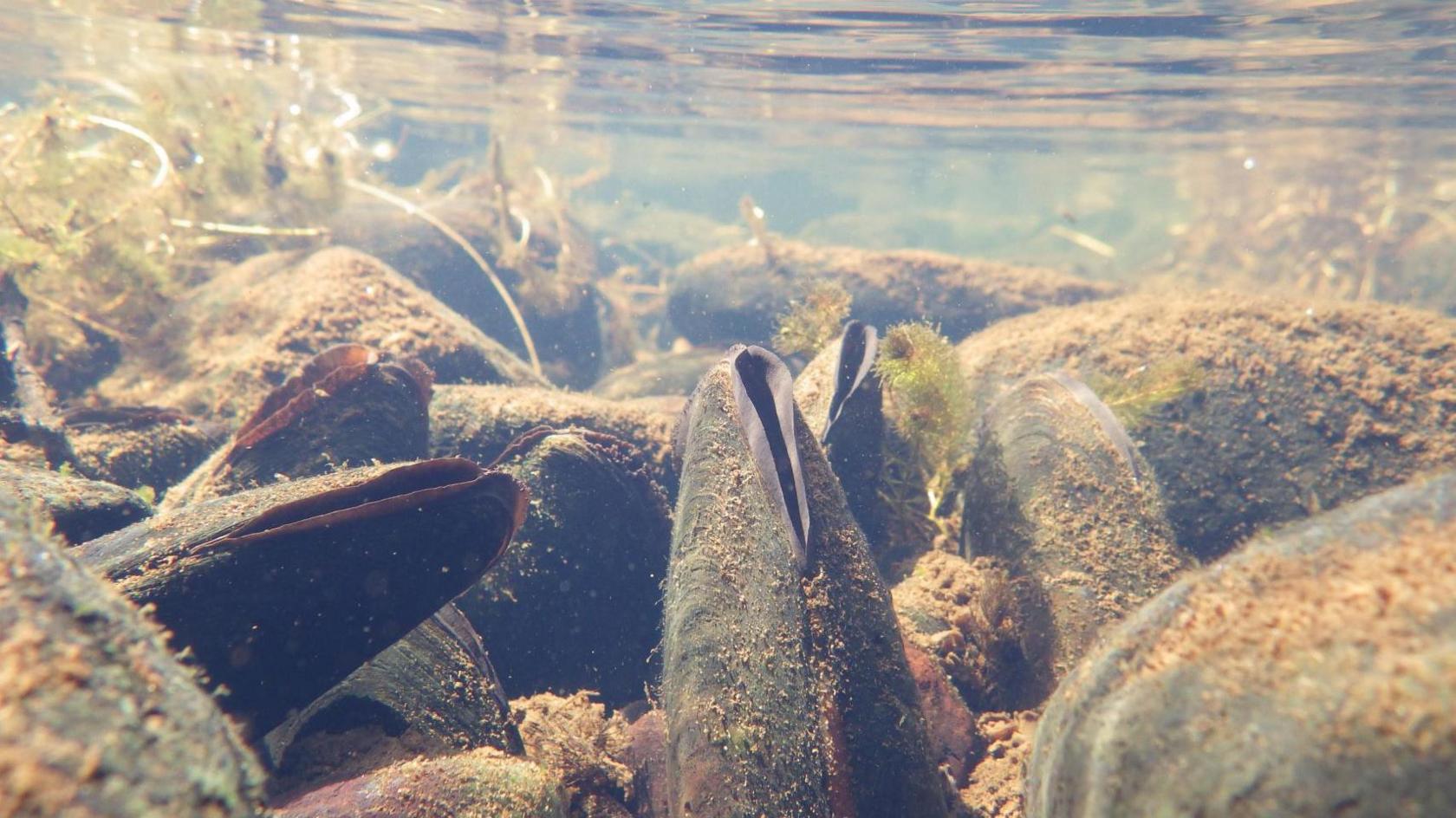
Freshwater pearl mussels are vulnerable to pollution and poaching
At a glance
Rare freshwater pearl mussels have been found in Scottish lochs for the first time, according to researchers
The critically endangered species had only previously been known to live in rivers
Scientists now hope to find out whether the creatures can breed in lochs
- Published
Critically endangered freshwater pearl mussels have been discovered living in two Scottish lochs.
Scientists said the protected species, which is vulnerable to pollution and poaching, had previously only been found in rivers.
Researchers using remotely-operated underwater drones and snorkelling equipment made the discoveries in lochs in Sutherland and the Trossachs.
Scotland's nature agency, NatureScot, said they likely entered the lochs by clinging to the gills of fish.
Early in their life cycle the mussels live harmlessly on young salmon and trout, before dropping off to live on riverbeds.
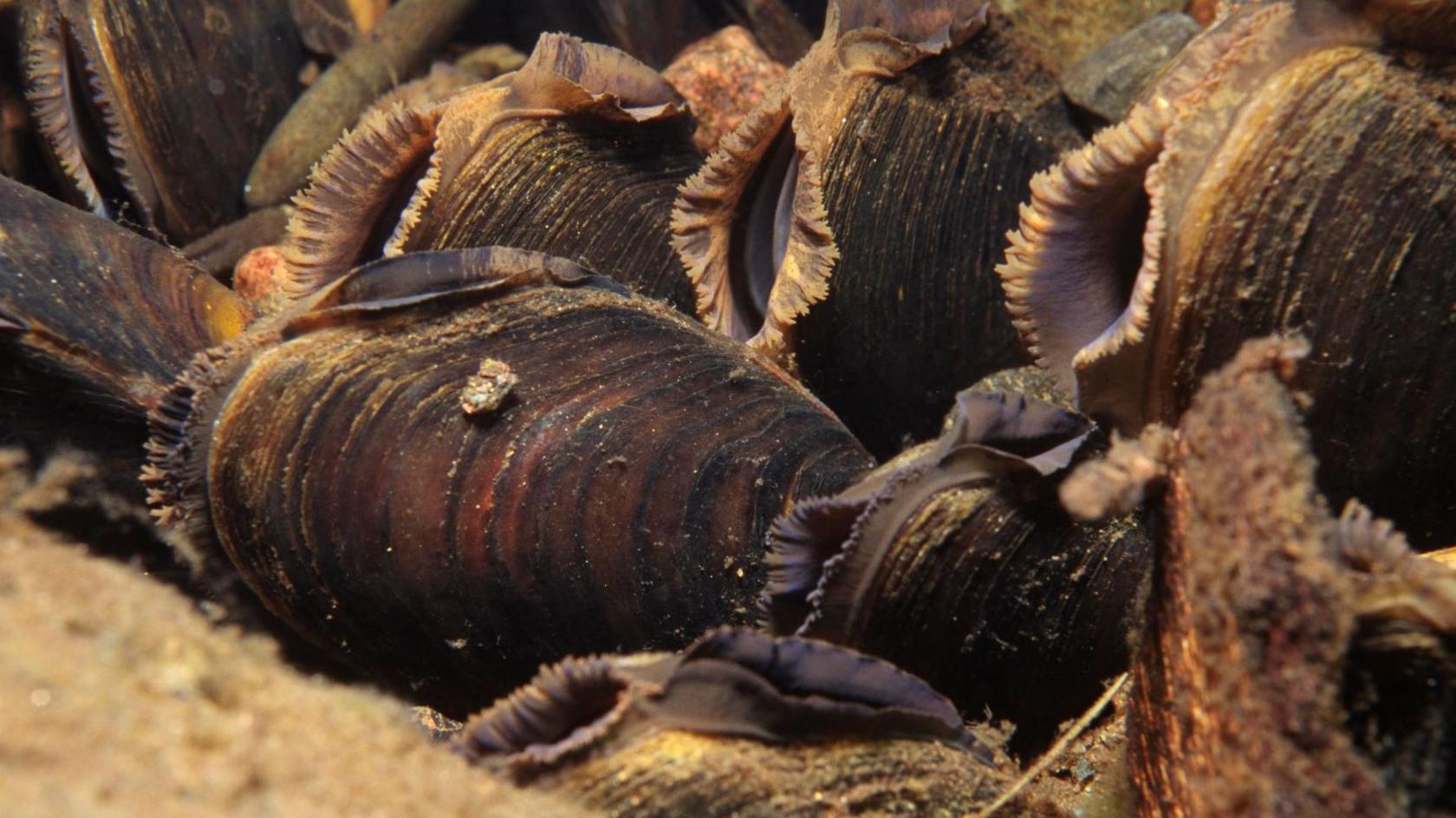
Scientists hope to find out whether the mussels can successfully breed in lochs
NatureScot’s Iain Sime said other lochs would now be surveyed for the species.
He said: “Other mussel species, including the much more widespread swan and duck mussels, are known to live and breed in Scottish lochs, but up until now we’ve had no evidence to suggest that pearl mussels routinely do this too.
“This project was an exciting first step in exploring our lochs and we’re keen to do further surveys to better understand more about this critically endangered species."
He added: "We don’t yet know whether they can breed in lochs and we want to learn more about a loch pearl mussel’s relationship with their host fish."
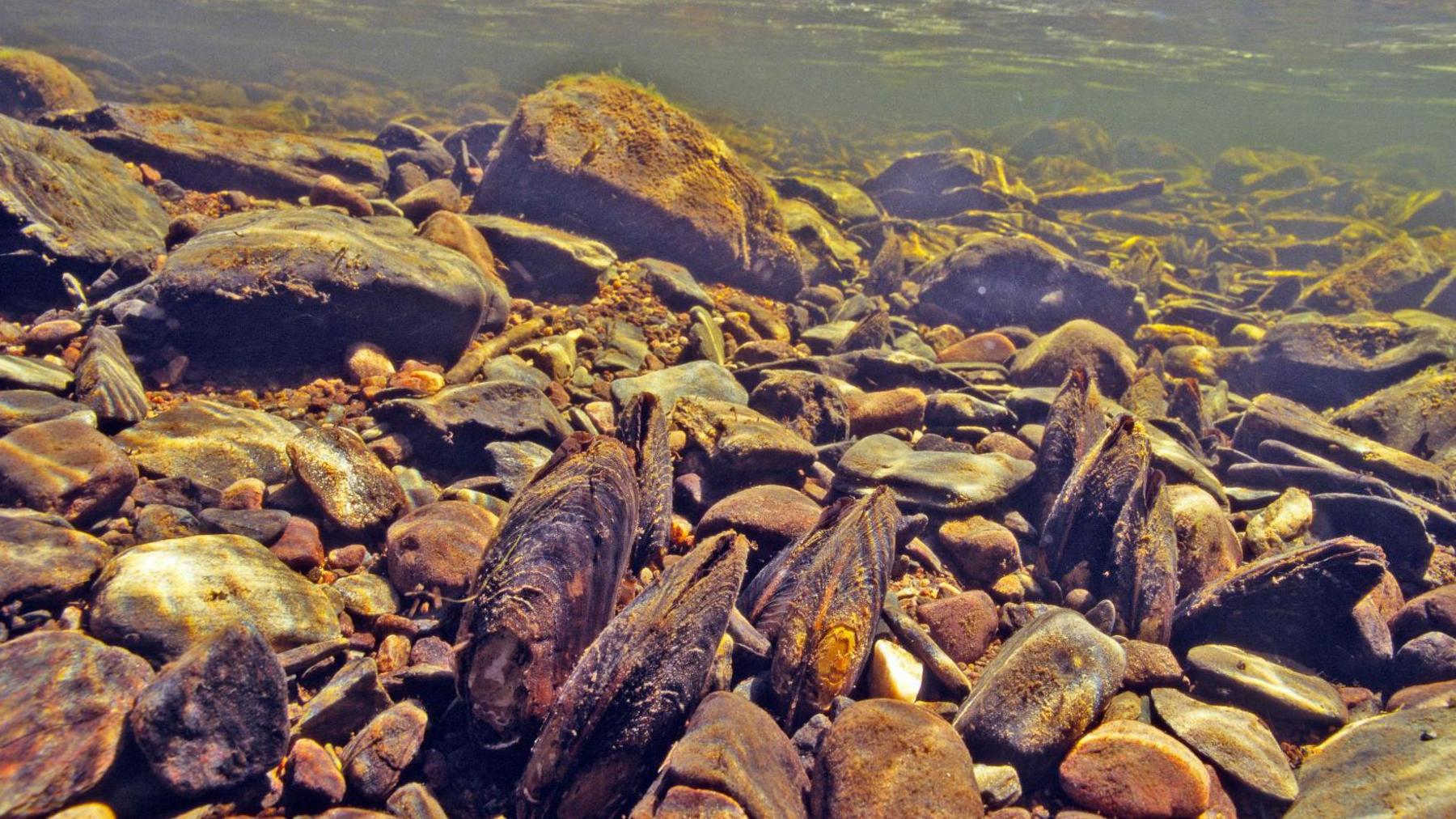
The mussels can live for more than 100 years
Freshwater pearl mussels are similar in shape to common marine mussels, but can grow larger and live for up to 130 years in fast-flowing rivers.
The Highlands and Islands are among Britain's last strongholds for the rare species.
NatureScot said the creatures had suffered massive historic decline due to over-exploitation and habitat loss.
Poaching continues to be a problem and there have been incidents in recent years on rivers in the Cairngorms and Sutherland.
In history, Julius Caesar's admiration of pearl mussels is cited by his biographer as a motive for the first Roman invasion of Britain in 55BC.
- Published28 August 2019
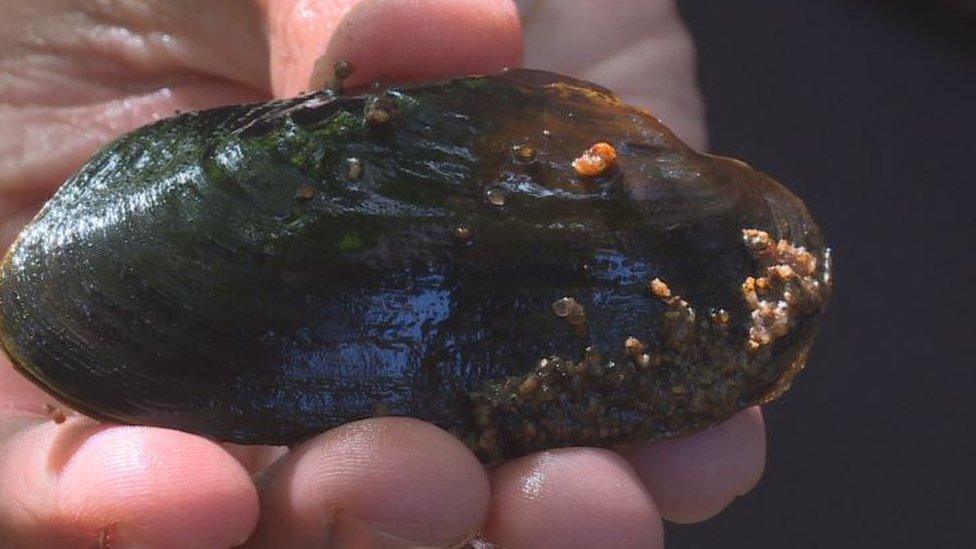
- Published10 July 2019
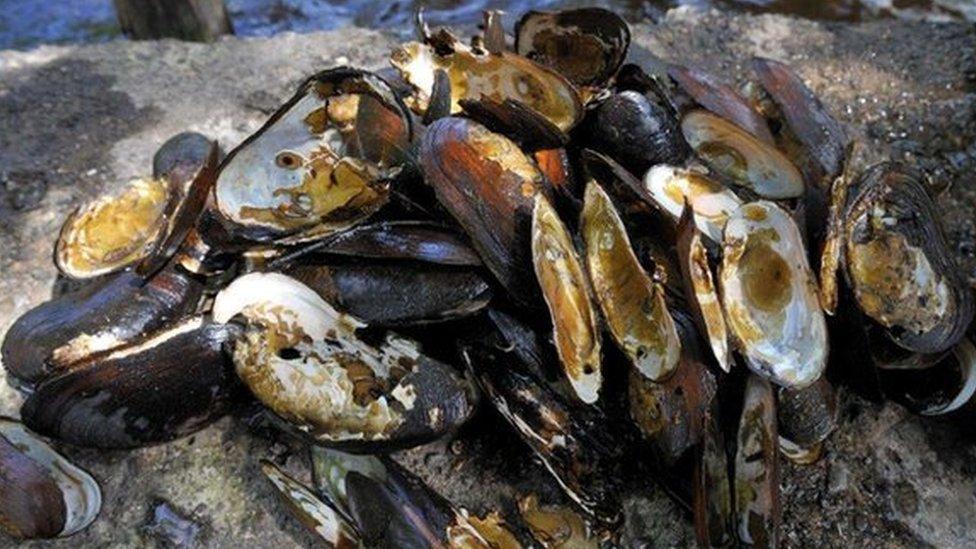
- Published15 June 2018
